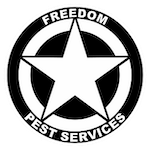Pet-Friendly Pest Control Methods and Products
When dealing with pests in a home with pets, it’s essential to prioritize pet safety. Pet-friendly pest control methods and products are designed to minimize risks to your furry companions. These methods include using:
- Non-Toxic Treatments: Opt for safe pet treatments, such as bait stations, traps, and diatomaceous earth.
- Natural and Organic Products: Consider natural and organic pesticides that are less harmful to pets and the environment.
- Sealed Applications: Ensure that any chemicals used are applied in areas inaccessible to pets, like wall voids or outdoor perimeters.
- Pet-Friendly Pest Control Professionals: Choose pest control companies knowledgeable about pet safety and take appropriate precautions.
Preparing Your Home and Pets Before the Pest Control Service
Before a pest control treatment, take steps to prepare your home and pets:
- Secure Pet Areas: Keep pets in a designated area away from the treatment zone, preferably with access to food, water, and toys.
- Remove Pet Food and Water Bowls: Temporarily remove food and water dishes to prevent contamination.
- Store Pet Bedding and Toys: Place pet bedding and toys in a safe, pest-free area.
- Seal Pet Food and Treats: Store pet food and treats in airtight containers.
Post-Treatment Care: Ensuring a Safe Environment for Your Pets
After pest control treatment, ensure your pet’s safety:
- Ventilate: Ventilate treated areas to disperse any lingering chemicals.
- Clean and Vacuum: Clean and vacuum treated areas to remove residues.
- Wash Pet Bedding: Wash pet bedding thoroughly.
Educating Yourself about Common Pet Poisons and Symptoms to Watch Out For
Be aware of common pet poisons and symptoms:
- Common Poisons: Learn about toxic substances to pets, such as chocolate, certain plants, and chemicals.
- Symptoms: Familiarize yourself with poisoning symptoms, like vomiting, diarrhea, and lethargy.
Monitoring Pets for Any Signs of Discomfort or Reaction
It is important to closely monitor your pets for any signs of discomfort, illness, or adverse reactions to pest control treatments. If you observe any unusual behavior or symptoms, it is recommended that you promptly get in touch with your veterinarian for further assistance and guidance.
To ensure the safety of your beloved pets while dealing with pest control in your home, it is essential to take preventive measures and stay well-informed. By implementing these precautions and staying updated on effective pest control methods, you can effectively protect your furry friends from any potential harm.
